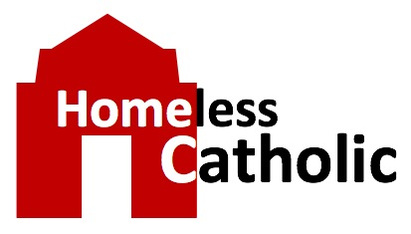Is food more than we think?
Food, of whatever sort fits the living organism, is consumed and life is enabled to both continue and develop. We observe this constantly. We recognize its necessity when we feed the animals at the zoo or the plants in our gardens. We recognize it in ourselves both in the pangs of hunger and in the pleasures of eating.
We have even given cultural significance to this activity which is nothing more than a biological necessity.
Image by RitaE
Reflection - Food
By Steve Hall
https://bible.usccb.org/bible/readings/021222.cfm
I Kings 12:26-32, 13:33-34
Mark 8:1-10
It’s hard not to be surprised that God can enrich even ordinary things with simplicity and complexity at the same time. The Bible is only one of many examples; but, being that it is one of only two divine things entrusted to us, its preeminence as an example should not be unexpected. The content of its communication can be understood even by those who cannot read, but can only listen. Yet the books are complimentary in a way that has kept scholars busy for well over a thousand years.
Because God communicates with mankind in ways that humanity can understand (It would be counterproductive for him to do otherwise.) he has taken the ordinary and made it extraordinary when it works to convey the message he would give. Such was the case when he took common humanity and elevated it in the Incarnation to unimaginable heights. But such efforts can be seen in even more mundane aspects of life.
Physical life as we know it requires constant, regular regeneration. Food, of whatever sort fits the living organism, is consumed and life is enabled to both continue and develop. We observe this constantly. We recognize its necessity when we feed the animals at the zoo or the plants in our gardens. We recognize it in ourselves both in the pangs of hunger and in the pleasures of eating. We have even given cultural significance to this activity which is nothing more than a biological necessity. Consider the multitude of ways in which this is done.
Coming together over food is an acceptable, even expected practice. Such activity was learned early on when we shared cake and soft drinks at a birthday party. It was reinforced throughout the years when family and/or friends gathered for picnics, barbecues or dinners just for the purpose of enjoying one another’s company and strengthening relationships. Food was part and parcel of celebrating our common faith at religious feasts as Christmas or Easter and such singular times as Baptisms and First Communions. It is not unusual for courtship to begin or mature over a cup of coffee, a lunch meeting, or a dinner date. Neither are block parties or neighborhood dinners uncommon. The Japanese share a tea ceremony. The Irish gather at the pub for beer and bangers. It is probably safe to say that every human culture gathers to share and celebrate over food. It seems that, whatever we do, from wedding banquets to super bowl parties, food will be present.
If we attempt to summarize the meaning of these events we would probably have to make a list. Food is central as we celebrate, as we gather to renew our common family ties, as we together confirm our faith, as we seek to build new relationships, as we rejoice in another’s good fortune, as we acknowledge our common humanity.
Although these examples are drawn from the present age, the pattern is no less true for peoples throughout history. Nevertheless, there are differences. These events must have been more intensely symbolic for those who lived in the past whose food supply was more frequently on the edge. The local Safeway had not yet opened for them and neither freeze dried nor canned nor vacuum sealed foods were available. So it was in Jesus’ day. Nevertheless, long before his time it had become the custom to welcome the stranger with food.
In those centuries development whereby food accrued the symbolism of being central as we celebrated, as we gathered to renew our common family ties, as we together confirmed our faith, as we sought to build new relationships, as we rejoiced in another’s good fortune, as we acknowledged our common humanity — in those centuries of symbolic development, the festive banquet was simultaneously becoming symbolic of the coming of God’s Kingdom. This was the conscious background against which Jesus fed the crowd. The banquet of bread and fish was a clear and powerful statement. Here, in the wilderness! Here, with this vast gathering of people! Here, with nothing but a few barley loaves and fish! Here, in the presence of our Father, we are fed.
Eventually this gathering, this celebrating around food would be raised to even greater heights. God himself would feed us — with himself. The Kingdom is here. It is to be taken within. Although we are individually brought to the faith, it is as a people that we celebrate and worship. That is why there is a necessary balance between our individuality and our participation in community. We know it in the ordinary aspects of life. It is important not to ignore it in our spiritual lives.

